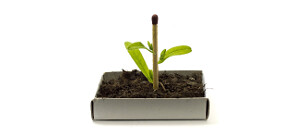Biotechnology

Location for Studies: Flexible
Duration: Ten weeks
Fee:
Outline for Online course: This master level course is given through down-loadable documents, audio-visual studies via web-based teaching platform, and exercises. At every level students are tested via online exams, before moving to next level. The course has no fixed time and the students may carry out their duties at any time of each study week. Communication between teacher and student is via educational platform via phone and emails. Final examination is performed online at the end of the course.
This course intends to expose students to the horizon of biotechnology and its various applications. It covers Microbiology, Biochemistry, Molecular biology and Genetics, Process biotechnology, Bioprocess engineering, Plant and animal biotechnology, Characteristics of Animal cells, Immunology, recombinant DNA technology, and Bioinformatics.
Teacher: Dr Manish Chandra Pathak
email: pmc@Gyankatta.Org
Phone / WhatsApp:
+91-9424476571
Duration: Ten weeks
Fee:
Outline for Online course: This master level course is given through down-loadable documents, audio-visual studies via web-based teaching platform, and exercises. At every level students are tested via online exams, before moving to next level. The course has no fixed time and the students may carry out their duties at any time of each study week. Communication between teacher and student is via educational platform via phone and emails. Final examination is performed online at the end of the course.
This course intends to expose students to the horizon of biotechnology and its various applications. It covers Microbiology, Biochemistry, Molecular biology and Genetics, Process biotechnology, Bioprocess engineering, Plant and animal biotechnology, Characteristics of Animal cells, Immunology, recombinant DNA technology, and Bioinformatics.
Teacher: Dr Manish Chandra Pathak
email: pmc@Gyankatta.Org
Phone / WhatsApp:
+91-9424476571
Contents1. Microbiology
i. Prokaryotic and Eukaryotic Cell Structure ii. Microbial nutrition, growth and control iii. Microbial Metabolism iv. Microbial genetics v. Viruses i. Biomolecules and their conformation
ii. Weak inter-molecular interactions in biomacromolecules iii. Chemical and functional nature of enzymes iv. Enzyme Kinetics v. Bioenergetics vi. Metabolism (Glycolysis, TCA and Oxidative phosphorylation) vii. Membrane transport viii. Cell cycle and cell growth control ix. Cell signaling and signal transduction 3. Molecular biology and Genetics
i. Molecular structure of genes and chromosomes
ii. DNA Replication, Transcription, and Translation iii. Regulatory controls in prokaryotes and eukaryotes iv. Mendelian inheritance v. Gene interaction (Epistasis) vi. Complementation vii. Linkage, recombination and chromosome mapping viii. Extrachromosomal inheritance ix. Chromosomal variation x. Population genetics xi. Transposable elements xii. Molecular basis of genetic diseases 4. Process biotechnology
i. Microbial production, purification and bioprocess application(s) of industrial enzymes
ii. Production and purification of recombinant proteins iii. Chromatographic and membrane based bioseparation methods iv. Immobilization and their application for bioconversion processes. v. Bioremediation 5. Bioprocess engineering i. Kinetics of microbial growth, substrate utilization and product formation
Sterilization of air and media
ii. Batch, fed-batch and continuous processes iii. Aeration and agitation iv. Mass transfer in bioreactors v. Rheology of fermentation fluids vi. Bioreactor Scale-up vii. Fermentation media viii. Various types of microbial and enzyme reactors ix. Instrumentation in bioreactors 6. Plant and animal biotechnology
i. Special features and organization of plant cells
ii. Totipotency iii. Regeneration of plants iv. Plant products of industrial importance v. Plants as Factories for Technical Materials vi. Products from Biodiversity vii. Autotrophic and heterotrophic growth viii. Plant growth regulators and elicitors ix. Cell suspension culture x. Production of secondary metabolites by plant suspension cultures xi. Hairy root culture xii. Techniques in raising transgenics 7. Characteristics of Animal cells
i. Metabolism, regulation and nutritional requirements for mass cultivation of animal cell cultures
ii. Kinetics of cell growth and product formation iii. Product and substrate transport iv. Micro & macro-carrier culture v. Hybridoma technology vi. Cloning in animals vii. Genetic engineering in animal cell culture viii. Animal cell preservation 8. Immunology
i. Immunology Glossary
ii. The origin of immunology iii. Inherent and innate immunity iv. Primary and secondary lymphoid organ v. Antigen/Antibody vi. B and T cells and Macrophages vii. Major histocompatibility complex (MHC) viii. Antigen processing and presentation ix. Synthesis of antibody and secretion x. Antibody diversity xi. Polyclonal and monoclonal antibody xii. Complement xiii. Antigen-antibody reaction xiv. Regulation of immune response xv. Immune tolerance xvi. Hyper sensitivity xvii. Autoimmunity 9. Recombinant DNA Technology
i. Restriction and modification enzymes
ii. Vectors iii. cDNA and genomic DNA library iv. Gene isolation v. Gene cloning vi. Expression of cloned gene vii. Transposons and gene targeting viii. DNA labeling ix. DNA sequencing x. Site-directed mutagenesis xi. DNA fingerprinting xii. Southern and northern blotting and In-situ hybridization xiii. Molecular markers (RFLP, RAPD) xiv. Gene transfer xv. Gene therapy 10. Bioinformatics
i. Major bioinformatics resources (Databases)
ii. OBRC: Online Bioinformatics Resources iii. Collection Biological Information Resources iv. Sequence and structure databases v. Sequence analysis (biomolecular sequence file formats, phylogeny, scoring matrices, sequence alignment) vi. Genomics and Proteomics vii. Microarrays viii. Molecular modeling and simulations (basic concept of force fields) |
Last modified: Sunday, 12 January 2025, 9:34 AM